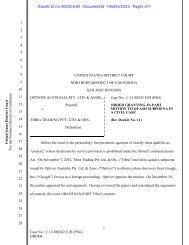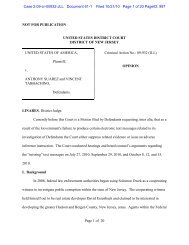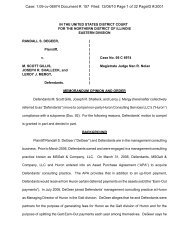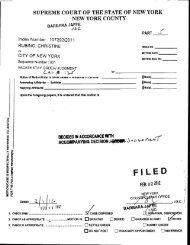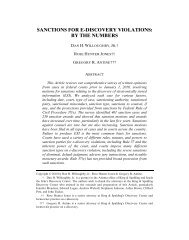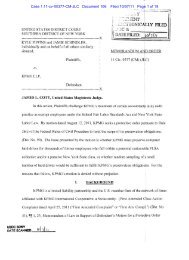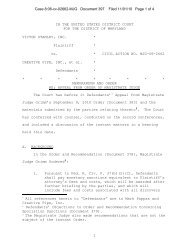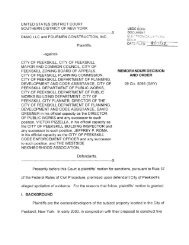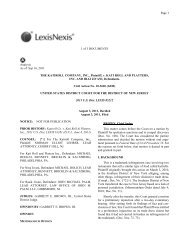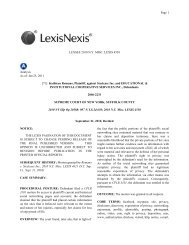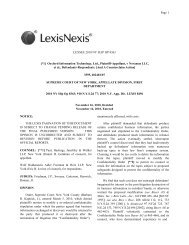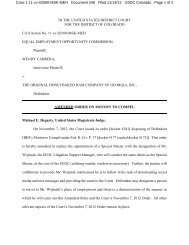Rimkus Consulting Group Inc. v. Cammarata - Ballard Spahr LLP
Rimkus Consulting Group Inc. v. Cammarata - Ballard Spahr LLP
Rimkus Consulting Group Inc. v. Cammarata - Ballard Spahr LLP
Create successful ePaper yourself
Turn your PDF publications into a flip-book with our unique Google optimized e-Paper software.
Case 4:07-cv-00405 Document 450 Filed in TXSD on 02/19/10 Page 13 of 139<br />
and consistent with clearly established applicable standards. 8<br />
As Judge Scheindlin pointed<br />
out in Pension Committee, that analysis depends heavily on the facts and circumstances of<br />
each case and cannot be reduced to a generalized checklist of what is acceptable or<br />
unacceptable. 9<br />
Applying a categorical approach to sanctions issues is also difficult, for similar<br />
reasons. Determining whether sanctions are warranted and, if so, what they should include,<br />
requires a court to consider both the spoliating party’s culpability and the level of prejudice<br />
to the party seeking discovery. Culpability can range along a continuum from destruction<br />
intended to make evidence unavailable in litigation to inadvertent loss of information for<br />
reasons unrelated to the litigation. Prejudice can range along a continuum from an inability<br />
to prove claims or defenses to little or no impact on the presentation of proof. A court’s<br />
response to the loss of evidence depends on both the degree of culpability and the extent of<br />
prejudice. Even if there is intentional destruction of potentially relevant evidence, if there<br />
is no prejudice to the opposing party, that influences the sanctions consequence. And even<br />
if there is an inadvertent loss of evidence but severe prejudice to the opposing party, that too<br />
will influence the appropriate response, recognizing that sanctions (as opposed to other<br />
8 See THE SEDONA PRINCIPLES: SECOND EDITION, BEST PRACTICES RECOMMENDATIONS & PRINCIPLES FOR<br />
ADDRESSING ELECTRONIC DOCUMENT PRODUCTION 17 cmt. 2.b. (2007) (“Electronic discovery burdens<br />
should be proportional to the amount in controversy and the nature of the case. Otherwise, transaction costs<br />
due to electronic discovery will overwhelm the ability to resolve disputes fairly in litigation.”).<br />
9 Pension Comm. of the Univ. of Montreal Pension Plan v. Banc of Am. Sec., LLC, No. 05 Civ. 9016, 2010<br />
WL 184312, at *3 (S.D.N.Y. Jan. 15, 2010). For example, the reasonableness of discovery burdens in a $550<br />
million case arising out of the liquidation of hedge funds, as in Pension Committee, will be different than the<br />
reasonableness of discovery burdens in a suit to enforce noncompetition agreements and related issues, as in<br />
the present case.<br />
13



